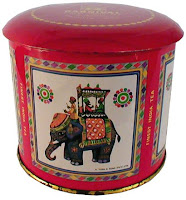Free speech in Hong Kong; recent publication
 In "Who are the real vultures?", posted last week, Merpel ventured to raise questions as to the freedom of speech in Hong Kong. She wrote:
In "Who are the real vultures?", posted last week, Merpel ventured to raise questions as to the freedom of speech in Hong Kong. She wrote: "it would be unfair to criticise the Hong Kong court without being in receipt of the full facts, but one gets the uneasy feeling that freedom of communication does not enjoy quite the same level of prestige as a legal right in the Chinese-owned former colony as it does in the European Union".
Edward Alder, a Barrister-at-law in Prince's Chambers, Hong Kong, has responded:
The IPKat and Merpel are grateful for this information. Merpel's anxiety concerning free speech in Hong Kong remains, though, not least since doubts about the protection of free speech are being expressed by two categories of people who are particularly sensitive to the issue - journalists and academics in Hong Kong itself: see for example here and here."I can assure Merpel that freedom of expression and communication enjoys exactly the same degree of protection here in Hong Kong that it receives in the EU. See
(a) Article 30 of the Basic Law, Hong Kong's constitution;
(b) Article 8 of the Basic Law which preserves the common law;
(c) Article 16 of the Hong Kong Bill of Rights, based on the ICCPR, which appears in s.8 of the Hong Kong Bill of Rights Ordinance, which is specifically preserved by Article 39 of the Basic LawThese issues do not appear in Deputy High Court Judge Carlson's judgment and one must assume they were not raised in argument.
Left: edible cat, Hong Kong-style
Although Burnton J said that an English court would have decided the matter differently, for the reasons he gives in para 52, he does not address how an English court would have dealt with the issue on which the Hong Kong judgment turned, that is breach of the Norwich Pharmacal order. In para 13 of his judgment, Judge Carlson says that the fact that the use of the documents in the hands of the recipient was governed by such an order rather than the implied discovery undertaking was fundamental and the order had been breached".
 The IPKat was thrilled to receive a copy of The Law of Patents--With a Special Focus on Pharmaceuticals in India, published by LexisNexis Butterworths and written by the bright and imaginative Feroz Ali Khader. Feroz (whom the Kat is honoured to have among regular readers of this weblog) has not merely a firm grasp of both practical issues and theoretical considerations: he also has a gift for writing English prose which is businesslike, relevant, direct, accessible and supported by authority. Young aspiring legal writers from India who seek publication of their works would do well to emulate his style [parenthetical note: there has been an explosion of interest in writing about intellectual property law in India, the country from which originate the largest number of articles submitted for publication in JIPLP].
The IPKat was thrilled to receive a copy of The Law of Patents--With a Special Focus on Pharmaceuticals in India, published by LexisNexis Butterworths and written by the bright and imaginative Feroz Ali Khader. Feroz (whom the Kat is honoured to have among regular readers of this weblog) has not merely a firm grasp of both practical issues and theoretical considerations: he also has a gift for writing English prose which is businesslike, relevant, direct, accessible and supported by authority. Young aspiring legal writers from India who seek publication of their works would do well to emulate his style [parenthetical note: there has been an explosion of interest in writing about intellectual property law in India, the country from which originate the largest number of articles submitted for publication in JIPLP]. While this book is focused on pharmaceutical patent law in India, it integrates Indian statute and case law into the wider context of international and European legal developments, as well as UK case law.
While this book is focused on pharmaceutical patent law in India, it integrates Indian statute and case law into the wider context of international and European legal developments, as well as UK case law.Left: India has become a world leader in the pharma patent game, but many people still prefer the medicinal qualities of a caddyful of Indian tea
This book also has its own weblog, which gives details of its contents and instructions as to how it may be ordered - as well as links to useful sources such as all 163 pages of the Indian Patent Office's Manual of Patent Practice and Procedure. The author hopes that this title will eventually evolve into a wiki - a reflection on our imminent departure from the world of paper.
Merpel says, my favourite bit in this book is the copyright notice. As printed, there is a copyright claim in favour of LexisNexis -- but it has been firmly overstickered with a notice declaring the author to be the copyright owner. It's good to see authors sticking up for their rights. But then, publishers should think twice before tangling with IP lawyers.
Bibliographic details. xliv + 1161 pages (the Appendices start at p.759). Hardback. ISBN 978-81-98038-150-8. Rupture factor: substantial.
